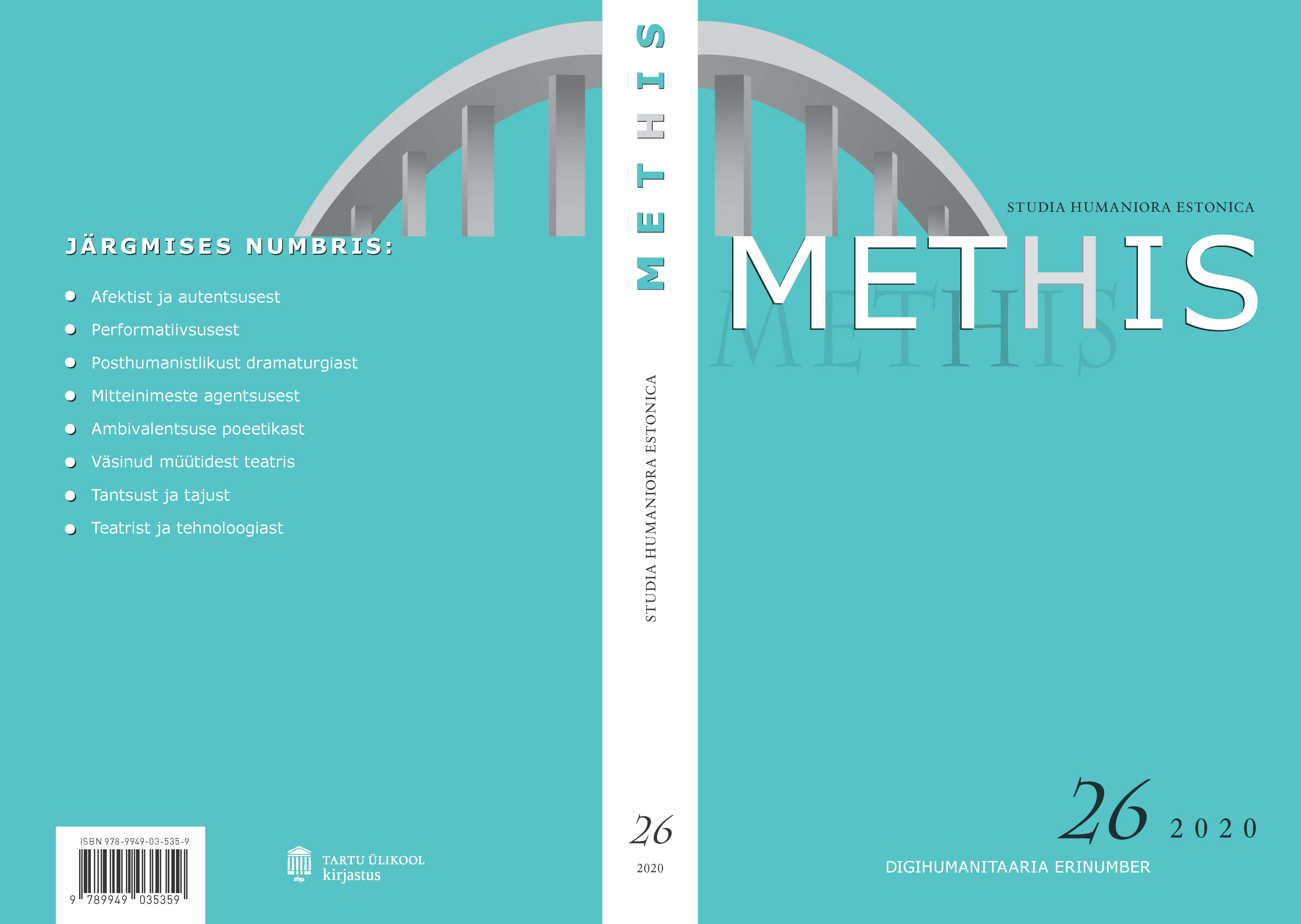Digipõlvkonnast sotsiaalmeedia põlvkonnaks. Põlvkondlikku enesemääratlust kujundavad trendid Eesti noorte internetikasutuses / From the digital generation to the social media generation: the main internet usage trends among Estonian young people leading t
DOI:
https://doi.org/10.7592/methis.v21i26.16908Keywords:
meediapõlvkonnad, digipõlvkond, sotsiaalmeedia põlvkond, noorte internetikasutus, empiirilised uuringud, media generations, digital generation, social media generation, empirical use of young people’s internet useAbstract
Meediakasutust puudutavad isiksuseomadused on kujunenud olulisteks põlvkondliku enesemääratluse ja identiteedi osisteks. Artiklis tutvustatakse meediapõlvkondade kultuurilisest käsitlusest lähtuvat lähenemist, mis näeb tänapäeva lapsi ja noori sotsiaalmeedia põlvkonnana. Mitmete empiiriliste uuringute tulemustele tuginevalt antakse artiklis ülevaade peamistest Eesti noortele omastest internetikasutuse harjumustest ja internetitegevustest. Millisena tajuvad sotsiaalmeedia põlvkonna esindajad sotsiaalmeedia rolli enda igapäevaelus, näitavad viieks päevaks sotsiaalmeedia kasutamisest loobunud noorte kogemuspäevikute sissekanded.
Scholars argue that the sense of belonging to a generation has proven to be one of the most important prerequisites for the formation of media habits and for the ways people consume various media. Especially the experience with media and technologies during the formative years, which helps to shape long-term media habits, is noted to be relevant in defining generations and their media consumption cultures. Younger generations, in particular, tend to build their generational identity around the devices that they use, perceiving that the specificity of the self-definition of their generation is anchored in the use of such technology. For example, a variety of labels – “digital generation”, “Net generation”, “digital natives”, etc. have been coined to signify the media preferences and supposed common media habits of present-day young people.
Relying on various recent quantitative (e.g. EU Kids Online survey) and qualitative studies, the present article aims to give an overview of the main trends surrounding Estonian children’s (9–17 year olds) internet use (e.g. access to the internet, time spent online, online activities, using the internet for schoolwork, digital skills). Furthermore, relying upon the findings of a qualitative study where young adults (n = 42, 18–23 year olds), who were asked to refrain from using any social media platforms for five consecutive days, reflect in their detox diaries upon the role social media plays in their daily lives.
The findings of EU Kids Online survey (n = 1020) from 2018 indicate that the internet has become an integral part of the daily lives of Estonian young people. The findings illustrate that 97 % of Estonian children (9–17 year olds) access internet through at least one device (most commonly a mobile or a smart phone) on a daily basis and tend to spend a significant amount of their waking hours on the internet. During the ongoing COVID-19 pandemic, children’s screen time has increased even more. Furthermore, the present-day pandemic has also revealed a digital stratification trend, which was not as strikingly evident in 2018 – in many households (34 %) children need to share devices for accessing remote learning platforms, as smart phones are not as user friendly.
Estonian young people claim to be versatile internet users, although entertainment and communication-related activities tend to prevail. Although children’s self-assessment of their digital skills is very good, children’s engagement in creative and participatory online activities, which also require more digital skills, is still rather uncommon. Findings of qualitative studies indicate that young people’s modest digital participation can be explained by their lack of motivation on the one hand, and the lack of polite and reasoned communication culture, on the other hand.
Due to the variety of affordances social media platforms provide, many children and young adults in Estonia have become habitual users of social media. The analysis of social media detox diaries revealed that for many young people social media is invisibly present in most of their daily activities (e.g. while eating, waiting to catch a bus, attending a lecture, taking a bath, etc.). Furthermore, the communicative interactions the young people engaged in, as well as the maintenance of both personal and professional relationships, had become increasingly mediated through various social media platforms. Thus, many young persons described their experience of feeling anxiety and FOMO (fear of missing out) during the social media detox. Thus, they experienced a need to find alternatives to their previously established media diets. In fact, in some of the participants, social media detox also triggered technostalgia for pre-digital forms of communication and “older” ways of communicating (e. g. face-to-face contacts, speaking on the phone).


